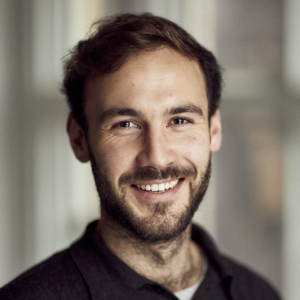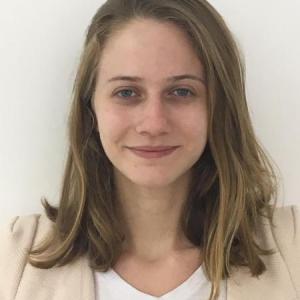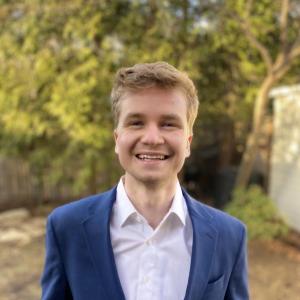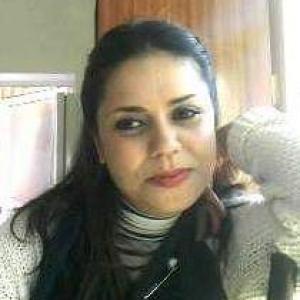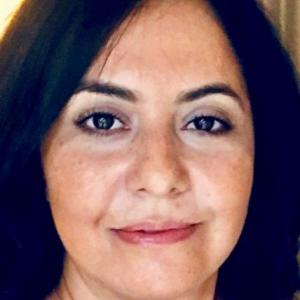Short description:
Jakob is Research and Policy Officer at OPHI. He does both academic research on multidimensional poverty measurement and analysis and associated areas – and he works with international partners in United Nations agencies and governments around the world towards the development of multidimensional poverty indices as permanent official statistics and all-of-government policy-tools.
Jakob is also Lecturer at Leuphana University of Lüneburg, Germany.
He previously held research positions at the Blavatnik School of Government and Mansfield College (both University of Oxford), and has worked in diplomacy for the German Federal Foreign Office.
Research interests
Theories, measurement, and analysis of well-being, poverty and inequality; welfare economics; sustainable (human) development; social protection; evidence-based public policy; and the capability approach.
Select Publications
2021
UNDP and OPHI (2021). Global Multidimensional Poverty Index 2021. Unmasking Disparities by Ethnicity, Caste and Gender. New York: United Nations Development Programme.
WHO (2021). Using Multidimensional Poverty and Vulnerability Indices to Inform Equitable Policies and Interventions in Health Emergencies. Geneva: World Health Organization.
Dirksen, J. and Alkire, S. (2021). ‘Children and Multidimensional Poverty. Four Measurement Strategies’, Sustainability, Vol. 16, No. 13: 9108. DOI: 10.3390/ su13169108. (Also published as: OPHI Working Paper 138, Oxford Poverty and Human Development Initiative (OPHI), University of Oxford.)
NPC (2021). Nepal Multidimensional Poverty Index 2021. Analysis Towards Action. Kathmandu: National Planning Commission, Government of Nepal.
2020
Dirksen, J. (2020). ‘Which Are the Dimensions and Indicators Most Commonly Used to Measure Multidimensional Poverty Around the World?’, Dimensions, Vol. 11: 14-22.
Alkire, S., Dirksen, J., Nogales, R. and Oldiges, C. (2020). ‘Multidimensional Poverty and Vulnerability to COVID-19. A Rapid Overview of Disaggregated and Interlinked Vulnerabilities in Sub-Saharan Africa’, OPHI Briefing 54a, Oxford Poverty and Human Development Initiative, University of Oxford.
Alkire, S., Dirksen, J., Nogales, R. and Oldiges, C. (2020). ‘Multidimensional Poverty and Vulnerability to COVID-19. A Rapid Overview of Disaggregated and Interlinked Vulnerabilities in Sub-Saharan Africa’, OPHI Briefing 54, Oxford Poverty and Human Development Initiative, University of Oxford. This briefing is also available in French.
Alkire, S., Dirksen, J., Nogales, R. and Oldiges, C. (2020). ‘Multidimensional Poverty and COVID-19 Risk Factors. A Rapid Overview of Interlinked Deprivations Across 5.8 Billion People’, OPHI Briefing 53a, Oxford Poverty and Human Development Initiative (OPHI), University of Oxford.
Alkire, S., Dirksen, J., Nogales, R., and Oldiges, C. (2020). ‘Multidimensional Poverty and COVID-19 Risk Factors. A Rapid Overview of Interlinked Deprivations Across 5.7 Billion People’, OPHI Briefing 53, Oxford Poverty and Human Development Initiative, University of Oxford.
Alkire, S., Dirksen, J., Oldiges, C. and Nogales, R. (2020). ‘Multidimensional Poverty and the Risk from COVID-19’, Dimensions, Vol. 9: 7-10.
UNDP and OPHI (2020). Global Multidimensional Poverty Index 2020. Charting Pathways out of Multidimensional Poverty: Achieving the SDGs. New York: United Nations Development Programme.
OPHI (2020). Multidimensional Poverty in Chhattisgarh: A Measure for Action. Oxford Poverty and Human Development Initiative, University of Oxford.
2019
UNDP and OPHI (2019). Global Multidimensional Poverty Index 2019. Illuminating Inequalities. New York: United Nations Development Programme.
Short description:
Dr. Jared O. Bell is a post-conflict development expert with extensive experience in designing and managing international human rights, democratization, and rule of law and justice sector programs. A prolific writer, Dr. Bell has published numerous articles on human rights, transitional justice, reconciliation and peace building, and is the author of the book “Frozen Justice: Lessons from Bosnia Herzegovina's Failed Transitional Justice Strategy” published with Vernon Press in 2018.
Short description:
I am a Research Fellow at the Cluster of Excellence Politics of Inequality at the University of Konstanz. My research interests and expertise include political communication, comparative research on science, academia and education policy across regimes, and computational methods for behavioral data. I have professional experience in policy-oriented research, legal implementation and conflict resolution in non-governmental organizations and independent bodies in the UK, EU and Middle East.
Short description:
Consultant for UNESCO's Inclusive Policy Lab. Assisting in UNESCO's role for a climate migration project, HABITABLE, as lead for inclusive stakeholder engagement. Daniel's primary background is on equitable and inclusive policy for smallholder farmers in East Africa and Southeast Asia, especially in the face of climate change. Prior to UNESCO, Daniel worked with the US Department of Agriculture’s Foreign Agriculture Service (USDA FAS) in Tanzania. Here he analyzed the implications of power within climate development projects among smallholder farmers, partnering with World Forestry (ICRAF) and the Food and Agriculture Organization. Daniel also worked in Vietnam and Indonesia with The International Centre for Tropical Agriculture (CIAT), analyzing the implementation of climate-smart agriculture. He is also involved in advising his former startup focused on food sovereignty in Kenya. Daniel holds an MSc in Environmental Change and Management and Master of Business Administration from the University of Oxford, following his undergraduate degree in agricultural economics and climate change from Cornell University.
Short description:
Social epidemiologist who has studied and written extensively on health equity and the social determinants of health. Have focused particularly on socioeconomic and racial/ethnic inequalities in health, particularly in maternal and infant health, and have worked to bring national and international attention to the issues. Have collaborated with local, state, national, and international health agencies to see knowledge translated into efforts for greater health equity.
Short description:
Mariana Braga Neves is a psychologist, a specialist in comprehensive sexuality education, and a master's in education. She has been working for more than 25 years in psychology, social and educational policies, sexuality education, prevention of STI/ HIV/AIDS, sexual and reproductive rights, bullying and violence in schools, gender equity, and violence and inclusive education. She has been an Education Program Officer for the United Nations Educational Science and Culture (UNESCO) in Brazil since 2002.
Short description:
I am a mindful individual with fifteen years of professional experience in international development and cooperation, nourished by a multidisciplinary academic knowledge and commitment to lifelong learning.
I worked at UNESCO Baghdad Office, at the UNESCO Headquarters, at the Regional Office for Eastern Africa and at UNOCT within the UN Secretariat.
I have an extensive experience in skills-based education including health education, gender equality and gender-based violence, global citizenship education and prevention of violent extremism with a focus on transformative pedagogy in order to equip young people with the cognitive, psycho and socio-emotional skills to make healthy choices and informed decisions for inclusive, peaceful, resilient and sustainable societies. I also have experience in building partnerships, networks and task teams with different constituencies.


